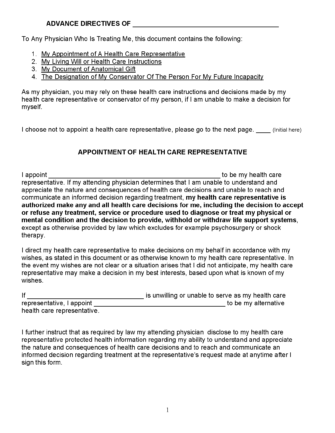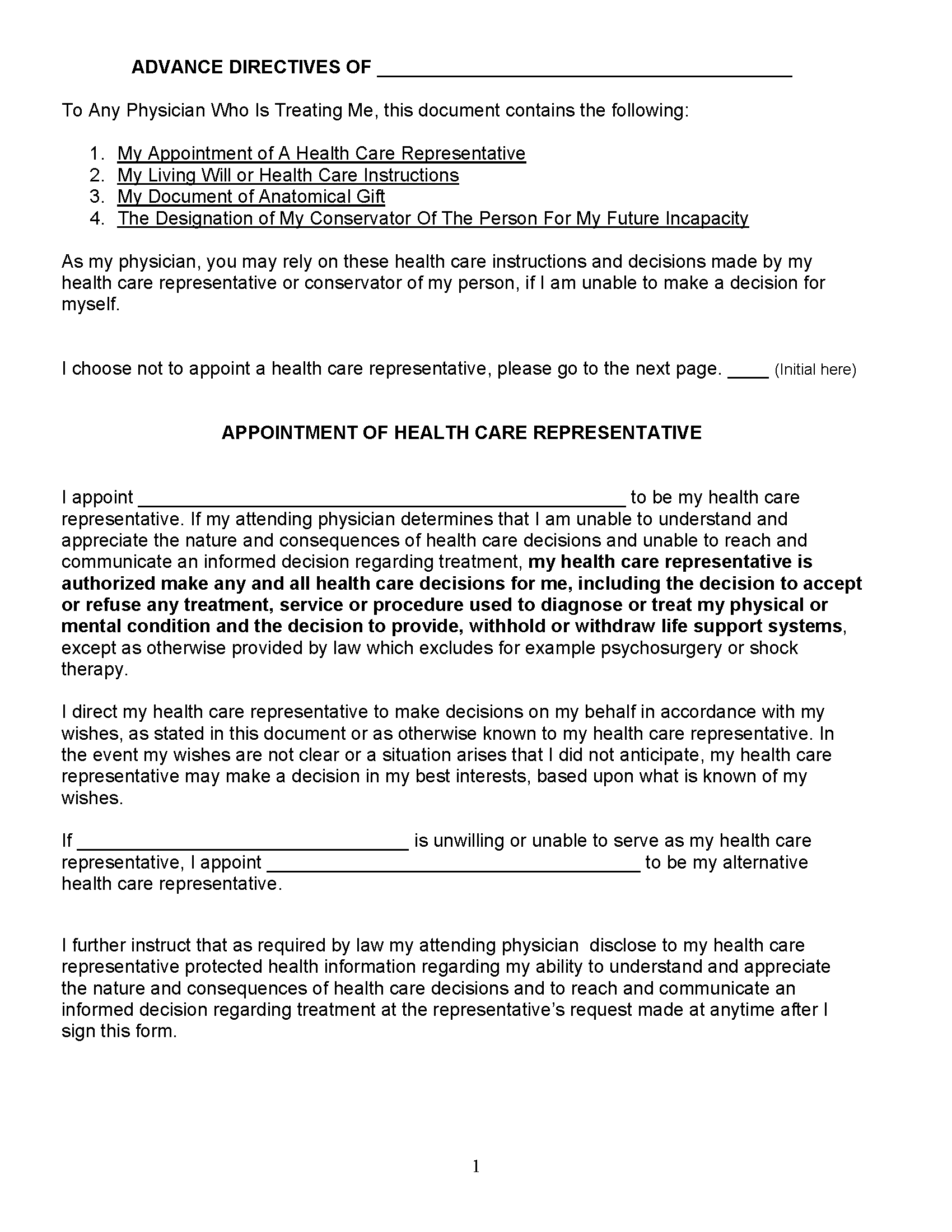Signing Requirements
In Connecticut, two witnesses must sign an advance directive.[1]
Advance Directive (Preview)
Revocation
Only a written revocation signed by the declarant and two witnesses may revoke the authority of the health care representative.[2] The declarant may revoke the living will portion at any time, in any manner, regardless of their mental or physical state.[3]
If the principal’s spouse is their health care representative, their authority will be revoked in the event of divorce or annulment unless the principal indicates otherwise.[4]

